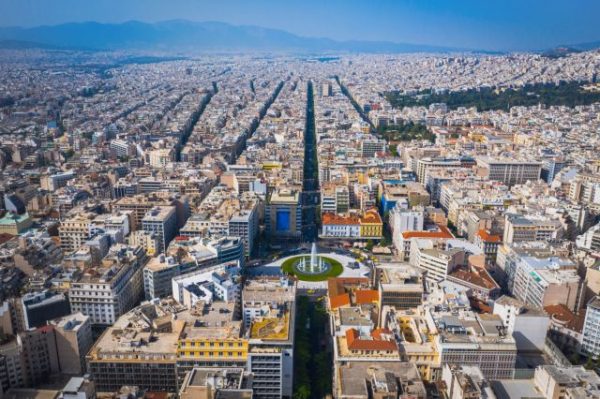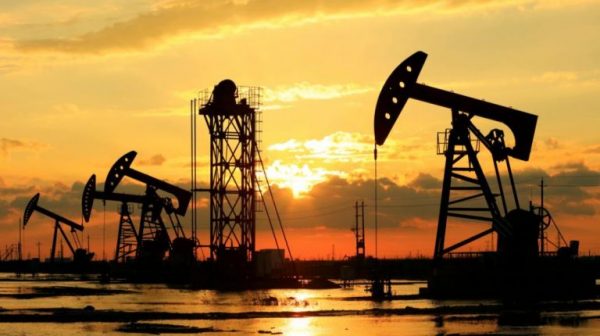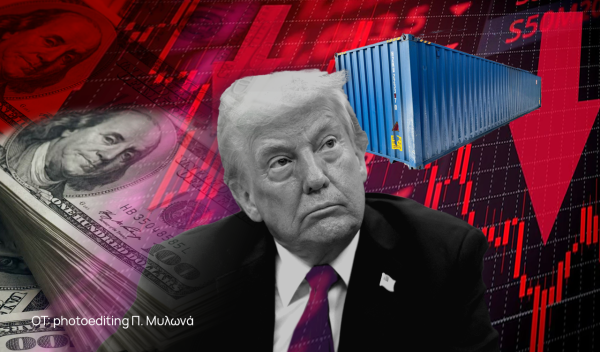
The Commission is preparing to detail its proposal for joint voluntary gas supplies from the Member States, with the aim of increasing strategic stocks and putting pressure on prices, with a view to tomorrow’s European Council in Brussels. The plenary of the European Parliament discussed the preparation of the European Council this morning, emphasizing the serious issue of high energy prices, in the presence of Commission Vice-President Maros Sefkovic.
ND-EPP MEP Maria Spyraki intervened in the discussion, stressing the need for joint voluntary orders to proceed immediately: “The EU must return to the lessons of the pandemic and proceed without further delay to voluntary joint orders for natural gas, “We are mainly facing the problem in the South, such as my homeland Greece, to strengthen our bargaining power vis-.-vis suppliers as part of the single market,” she said.
Recalling the earlier statement of the President of the Commission Ursula von der Leyen, for decoupling the price of electricity from the price of gas, Ms. Spyraki asked for the Commission to proceed immediately to change the legislative framework.
Responding to the ND MEP, Commission Vice-President Maros Sefkovic brought the Commission’s toolbox to reduce energy prices to the forefront, stressing the need to tackle energy poverty: “The issue of energy prices is high on our agenda, and with the Member States to ensure that they make the most of the toolkit we have offered them to combat energy poverty in the most honest way, and to ensure that all these opportunities are taken full advantage of, “said the Commission Vice-President.
The full text of Ms. Spyraki’s speech is as follows:
“The problem of high energy prices can only be tackled starting with tomorrow ‘s European Council, collectively and dynamically, despite the fact that the energy mix is the responsibility of the Member States. The EU must return to the lessons of the pandemic and proceed without further delay to voluntary joint gas orders, so that the countries that are mainly facing the problem in the South, such as my homeland Greece, can strengthen our bargaining power against suppliers as part of the single market.
It is also essential that the EU supports the infrastructure that enhances our strategic energy autonomy. Stability and energy security in Southeast Europe go hand in hand with green energy transit and storage infrastructure for the future to come.
From the mouth of the President of the Commission began the debate on the decoupling of gas prices from electricity, a choice that implies in principle high strategic reserves of common use. This debate must develop immediately into the necessary change in the legislative framework.
High energy prices, inflation, precision in goods mainly affect the weakest. It is our responsibility to tackle energy poverty radically. The big social fund will be ready in 2026. Until then, the EU interventions must not leave any of our fellow citizens in the cold. In Menemeni, in Mandra, in Nevrokopi, they see us and wait for the EU to act. Merry Christmas to all of us. ”
The Vice President of the European Commission Maros Sefkovic, responding to the ND-EPP MEP, Maria Spyraki, stressed: “Ms. Spyraki I believe that throughout this year we have clearly proven, with the Green Deal Package, Fit for 55, with our clear leadership at COP26 in Glasgow, but also with the package that we adopted just yesterday, I believe that proves that we are world leaders in tackling climate change. And we are the only big economy that translates its political ambitions into legislation and tangible, real measures.
And we have presented to you in detail the package of additional measures we adopted yesterday, which addresses the issue of the hydrogen industry, energy security, the modernization of the transport sector, the preparation of our European TEN-T infrastructure for smart travel, which in this light, they could be additional evidence.
And of course, the question of energy prices is very high on our agenda, and we work with the Member States to ensure that they make the most of the toolkit we have provided to fight energy poverty in the most honest way, and to ensure that all these opportunities are seized, to the fullest. “
Latest News

Trump Tariffs Jeopardize Growth: Piraeus Chamber of Commerce
The tariffs, aimed at reducing the U.S. trade deficit, are expected to have both direct and indirect effects on the European economy

EU Condemns Trump Tariffs, Prepares to Retaliate
As tensions escalate, the EU is expected to continue negotiations with Washington while preparing for potential economic retaliation.

The Likely Impact of Trump Tariffs on Europe and Greece
Trump tariffs are expected to negatively affect economic growth in the Eurozone while Greece's exports could take a hit.

Motor Oil Results for 2024: Adjusted EBITDA of 995 mln€; Proposed Dividend of 1.4€ Per Share
Adjusted EBITDA for 2024 was down 33% yoy. The adjusted profit after tax for 2024 stood at 504 million euros, a 43% decrease from the previous year

Cost of Living: Why Greece’s 3% Inflation Is Raising Alarm
Greece appears to be in a more difficult position when it comes to price hikes, just as we enter the era of Trump’s tariffs.

Fitch Ratings Upgrades the Four Greek Systemic Banks
NBG’s upgrade reflects the bank’s ongoing improvements in its credit profile, Fitch notes in its report, including strong profitability, a reduction in non-performing exposures (NPEs), and lower credit losses

Trump to Announce Sweeping New Tariffs Wednesday, Global Retaliation Expected
With Trump's announcement just hours away, markets, businesses, and foreign governments are bracing for the fallout of one of the most aggressive shifts in U.S. trade policy in decades.

Inflation in Greece at 3.1% in March, Eurostat Reports
Average inflation in the eurozone settled at 2.2%, compared to 2.3% in February

Greece’s Unemployment Rate Drops to 8.6% in February
Despite the overall decline, unemployment remains higher among women and young people.

Jerry Kalogiratos Highlights Key Role of Energy Transition and Data Demand in LNG Outlook
Energy transition and the prospects of LNG were discussed at Capital Link’s 19th Annual International Maritime Forum, during a panel discussion with Jerry Kalogiratos (Capital Clean Energy Carriers Corp.)
























![ΕΛΣΤΑΤ: Αυξήθηκε η οικοδομική δραστηριότητα κατά 15,6% το Δεκέμβριο [πίνακες]](https://www.ot.gr/wp-content/uploads/2025/03/DSC9655-2-1024x569-1-90x90.jpg)

















 Αριθμός Πιστοποίησης
Αριθμός Πιστοποίησης